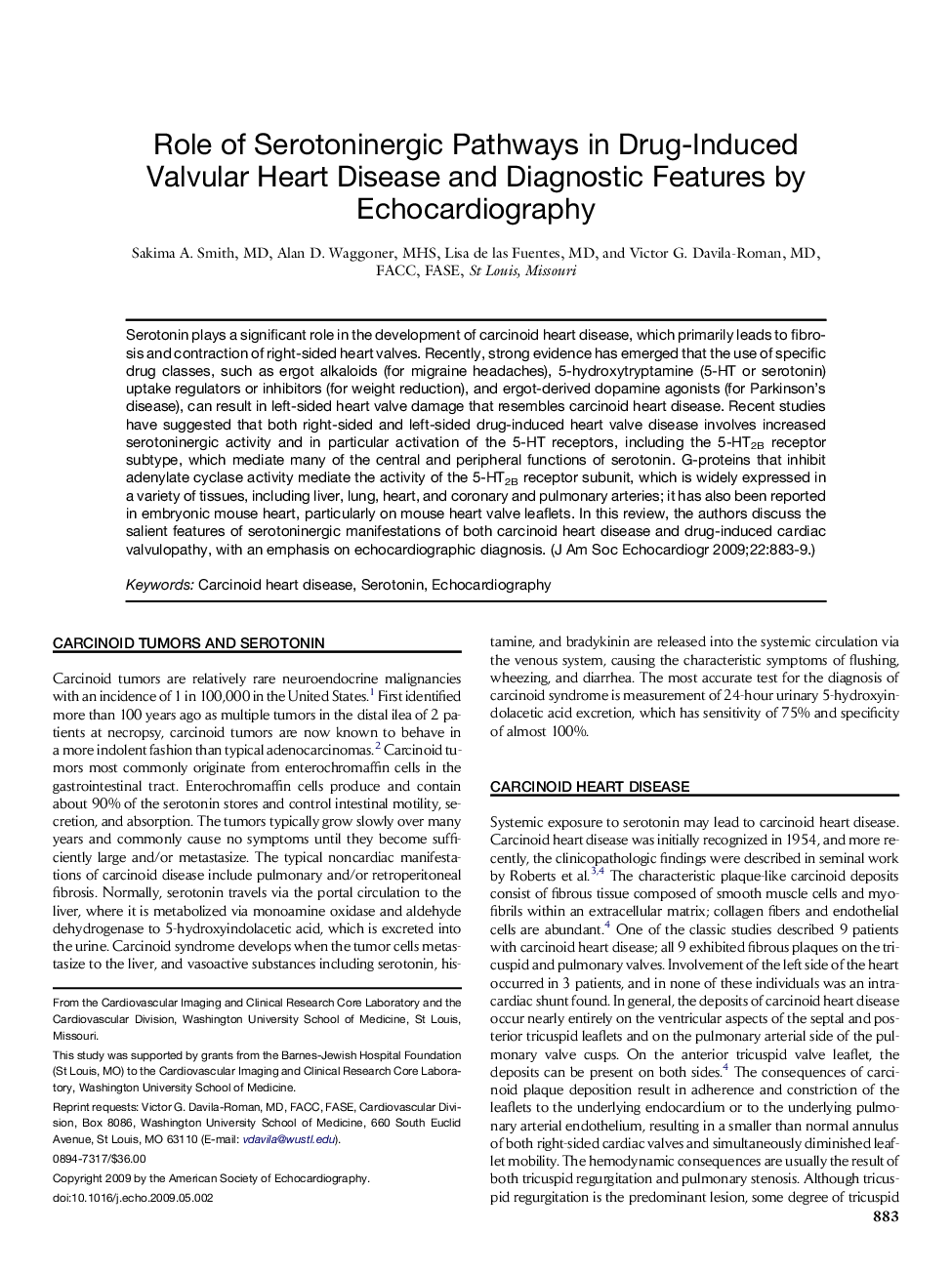| Article ID | Journal | Published Year | Pages | File Type |
|---|---|---|---|---|
| 5613295 | Journal of the American Society of Echocardiography | 2009 | 7 Pages |
Abstract
Serotonin plays a significant role in the development of carcinoid heart disease, which primarily leads to fibrosis and contraction of right-sided heart valves. Recently, strong evidence has emerged that the use of specific drug classes, such as ergot alkaloids (for migraine headaches), 5-hydroxytryptamine (5-HT or serotonin) uptake regulators or inhibitors (for weight reduction), and ergot-derived dopamine agonists (for Parkinson's disease), can result in left-sided heart valve damage that resembles carcinoid heart disease. Recent studies have suggested that both right-sided and left-sided drug-induced heart valve disease involves increased serotoninergic activity and in particular activation of the 5-HT receptors, including the 5-HT2B receptor subtype, which mediate many of the central and peripheral functions of serotonin. G-proteins that inhibit adenylate cyclase activity mediate the activity of the 5-HT2B receptor subunit, which is widely expressed in a variety of tissues, including liver, lung, heart, and coronary and pulmonary arteries; it has also been reported in embryonic mouse heart, particularly on mouse heart valve leaflets. In this review, the authors discuss the salient features of serotoninergic manifestations of both carcinoid heart disease and drug-induced cardiac valvulopathy, with an emphasis on echocardiographic diagnosis.
Related Topics
Health Sciences
Medicine and Dentistry
Cardiology and Cardiovascular Medicine
Authors
Sakima A. MD, Alan D. MHS, Lisa MD, Victor G. MD, FACC, FASE,
